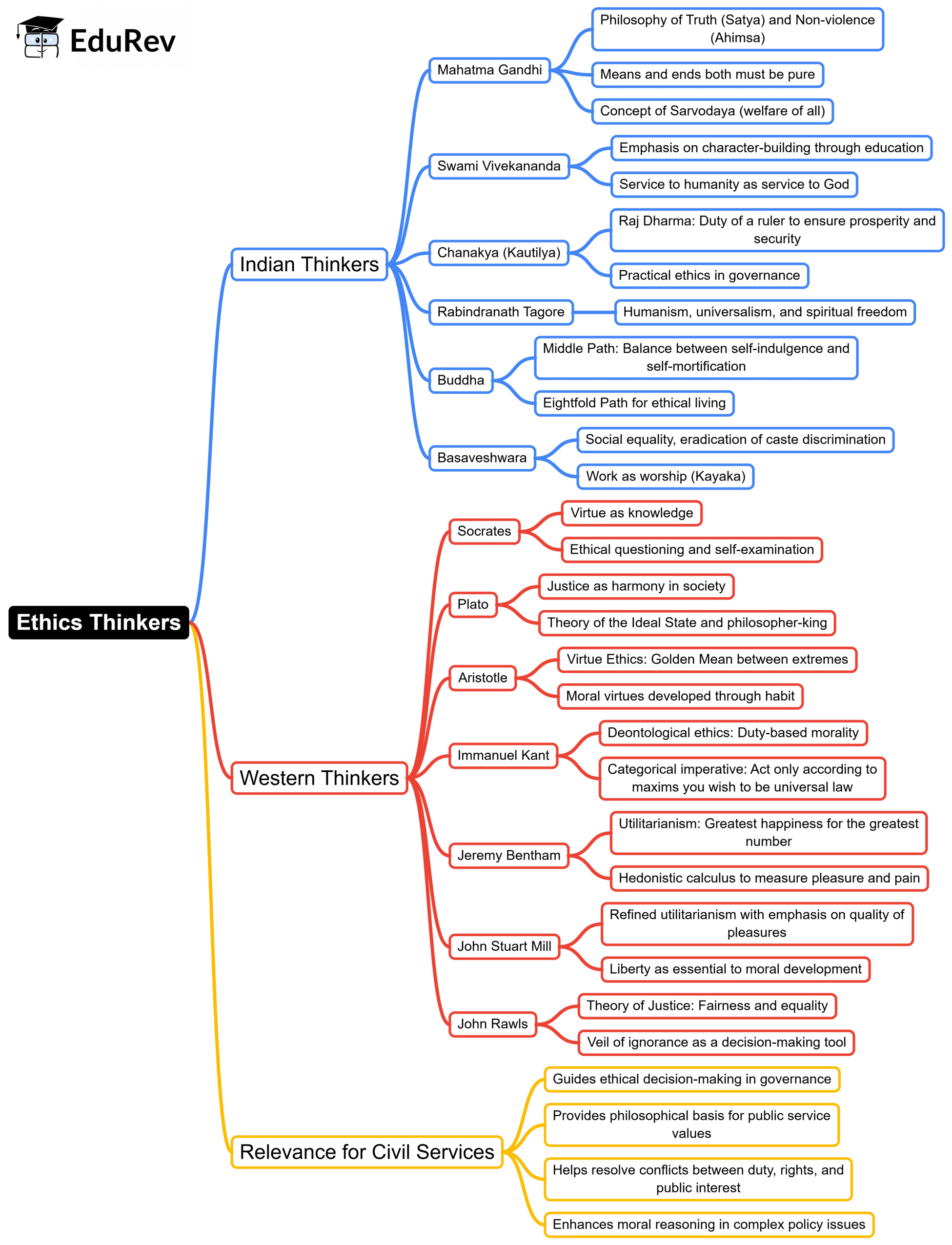UPSC Exam > UPSC Notes > UPSC Mains: Ethics, Integrity & Aptitude > Mind Map: Ethics Thinker
Mind Map: Ethics Thinker | UPSC Mains: Ethics, Integrity & Aptitude PDF Download

The document Mind Map: Ethics Thinker | UPSC Mains: Ethics, Integrity & Aptitude is a part of the UPSC Course UPSC Mains: Ethics, Integrity & Aptitude.
All you need of UPSC at this link: UPSC
|
78 videos|139 docs
|
FAQs on Mind Map: Ethics Thinker - UPSC Mains: Ethics, Integrity & Aptitude
| 1. What is the significance of ethics in civil services? |  |
Ans. Ethics plays a crucial role in civil services as it guides the behavior and decision-making of public servants. It ensures that officials act with integrity, accountability, and transparency, thereby fostering trust and confidence among citizens. Ethical conduct is essential for maintaining the rule of law and upholding democratic values.
| 2. Who are some prominent thinkers in the field of ethics? |  |
Ans. Some prominent thinkers in ethics include Aristotle, who emphasized virtue ethics; Immanuel Kant, known for his deontological ethics; John Stuart Mill, who advocated for utilitarianism; and more contemporary figures like Peter Singer, who focuses on practical ethics and global justice. Their ideas provide a foundation for understanding moral principles and their application in various contexts.
| 3. How does one prepare for the ethics portion of the civil services examination? |  |
Ans. Preparing for the ethics portion involves studying ethical theories and principles, understanding case studies, and analyzing the role of ethics in governance. Candidates should engage in discussions, practice writing answers to ethical dilemmas, and review previous years’ questions to familiarize themselves with the exam format and expectations.
| 4. What are some common ethical dilemmas faced by civil servants? |  |
Ans. Common ethical dilemmas include conflicts of interest, corruption, misuse of authority, and challenges in balancing personal values with professional obligations. Civil servants may also face situations where they must choose between the welfare of the public and adherence to bureaucratic procedures, requiring careful consideration and ethical judgment.
| 5. How can ethical decision-making be improved in public administration? |  |
Ans. Improving ethical decision-making in public administration can be achieved through comprehensive training programs, establishing clear ethical guidelines, promoting a culture of accountability, and encouraging open dialogue about ethical issues. Additionally, implementing mechanisms for reporting unethical behavior without fear of reprisal can enhance integrity within public institutions.
Related Searches















